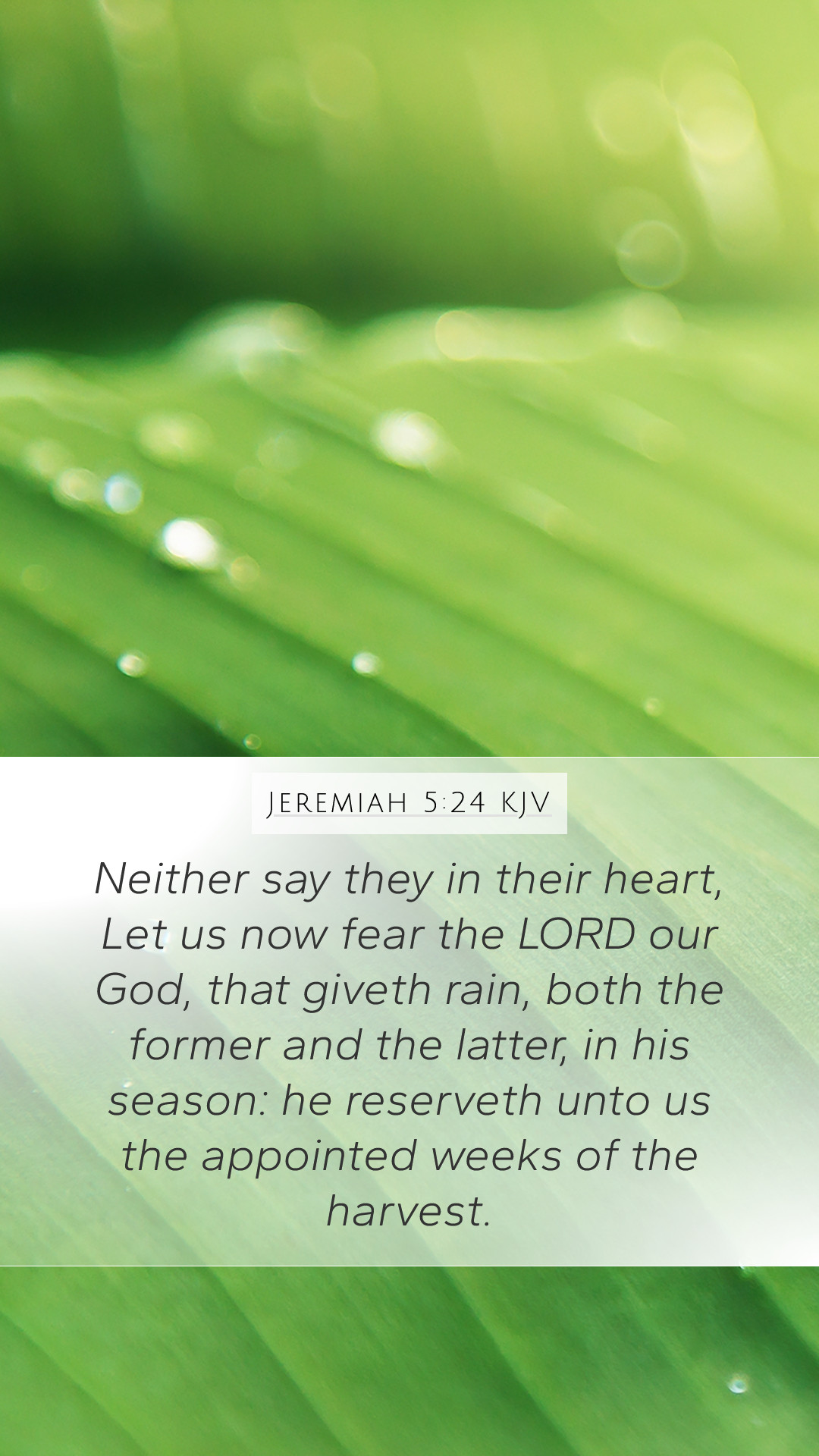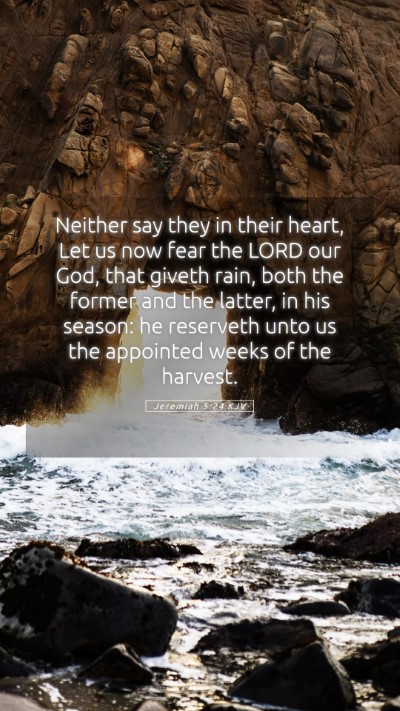Bible Verse Explanation for Jeremiah 5:24
Verse Reference: Jeremiah 5:24
Verse Text: "Neither say they in their heart, Let us now fear the LORD our God, that giveth rain, both the former and the latter, in his season: he reserveth unto us the appointed weeks of the harvest."
Understanding the Context of Jeremiah 5:24
The verse Jeremiah 5:24 reflects a critical point in Israel's history, where the people had turned away from God and failed to recognize His provision and sovereignty. This scripture calls attention to two significant aspects: the acknowledgment of God’s power over nature, specifically in providing rain, and the people's disregard for fearing the Lord, which symbolizes a lack of reverence and honor towards God.
Verse Analysis and Commentary
The following insights are gathered from renowned public domain commentaries including those by Matthew Henry, Albert Barnes, and Adam Clarke:
-
Matthew Henry's Commentary:
Matthew Henry emphasizes the people's failure to acknowledge God’s role in their sustenance. The reference to rain signifies God's provision for life and the agricultural cycle. Henry points out that the "neither say they in their heart" indicates a deliberate neglect of recognizing God, suggesting that true understanding requires both acknowledgement and fear of the Lord. The fear mentioned is not merely terror, but a profound respect and reverence that should guide their lives.
-
Albert Barnes' Notes:
Barnes explains that the rain mentioned symbolizes blessings that are inherently tied to obedience to God. He interprets the phrase "appointed weeks of harvest" to mean that God has a predetermined plan for His people, designed to provide at the right time. Barnes urges the reader to see the importance of understanding God’s timing and His faithful provision as critical elements in developing a biblical worldview.
-
Adam Clarke's Commentary:
Clarke takes a historical approach, discussing how the Israelites often forgot their reliance on God especially during times of prosperity. He posits that their neglect of godly fear would lead to a neglect of the very blessings they were experiencing. Clarke reiterates the importance of maintaining a relationship with God, as this verse serves as a warning that the absence of reverence leads to spiritual decline and eventual judgment.
Theological Significance
This verse not only portrays the plight of Israel but also serves as a timeless reminder for all believers about the necessity of recognizing and respecting God in their daily lives. The failure to do so, as indicated by the lack of fear for the Lord, leads to spiritual apathy and ultimately to the forfeiture of God's blessings.
Application for Daily Life
Believers today can learn from Jeremiah 5:24 about the importance of cultivating a fear of the Lord, which translates into daily recognition of His provision, guidance, and sovereignty. As we apply this alongside our Bible study insights, we are encouraged to reflect on areas of our lives where we might be neglecting acknowledgment of God's roles, especially in times of abundance.
Cross References
- Deuteronomy 11:14 - God's promise to send rain and blessings upon the land.
- Psalms 65:9-10 - Acknowledgment of God’s power over the earth and its provision.
- Isaiah 30:23 - Reflection on God’s care for His people through provision.
Conclusion
In summary, Jeremiah 5:24 challenges us to examine our hearts concerning how we perceive and acknowledge God’s authority and provision in our lives. By understanding this verse through the lenses of historical context and theological significance, we can better appreciate its relevance in contemporary Christian life.


